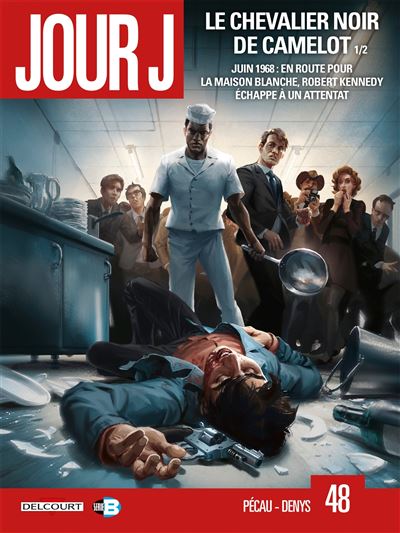True to form, Mark Millar returns once again with a personal reinterpretation of pop culture's greatest hits. With Huck, it is the fusion between the iconoclastic Superman and the "simple-minded" Forrest Gump that the American screenwriter makes us live. A reading to discover at Panini Comics!
The pump attendant Huck leads a quiet life. If he has fantastic powers, he uses them discreetly to do good around him. But one day, his gifts are revealed and man becomes the center of attention.(Contains US Huck episodes 1-6)
Hero with a big heart
![Huck Cover [CRITICISM] Huck - When Forrest Gump Met Superman](http://www.justfocus.fr/wp-content/uploads/2017/09/Huck-Cover.jpg) At the release of each new story by Mark Millar there is always a little apprehension. The screenwriter has accustomed us since the creation of his Millarworld to oscillate between very good self-sufficient stories and the cinema script a little wobbly, but with beautiful images. For once, Huck places himself between the two aforementioned poles by proposing a hero who only wants to live his future cinematographic life (which is not impossible with the recent agreement between Millarworld and Netflix) and the intimate story for those nostalgic for the golden-age of comics. Because as a rereading of the myth of the superhero, Huck is far from what Mark Millar has accustomed us with his other series such as Kick Ass or Jupiter Legacy. Huck is a man of few words living quietly in his American countryside, possessing superhuman abilities and an incredible ability to deduce to find lost people and objects. Possessing no ounce of malice in him and despite a disturbing element propelling him to the forefront of the journalistic scene, he lives only to help and please those around him. He is the exact definition of a selfless superhero with no apparent flaws, aside from the obvious kindness he portrays.
At the release of each new story by Mark Millar there is always a little apprehension. The screenwriter has accustomed us since the creation of his Millarworld to oscillate between very good self-sufficient stories and the cinema script a little wobbly, but with beautiful images. For once, Huck places himself between the two aforementioned poles by proposing a hero who only wants to live his future cinematographic life (which is not impossible with the recent agreement between Millarworld and Netflix) and the intimate story for those nostalgic for the golden-age of comics. Because as a rereading of the myth of the superhero, Huck is far from what Mark Millar has accustomed us with his other series such as Kick Ass or Jupiter Legacy. Huck is a man of few words living quietly in his American countryside, possessing superhuman abilities and an incredible ability to deduce to find lost people and objects. Possessing no ounce of malice in him and despite a disturbing element propelling him to the forefront of the journalistic scene, he lives only to help and please those around him. He is the exact definition of a selfless superhero with no apparent flaws, aside from the obvious kindness he portrays.
In tune with our daily lives?
Due to the simplicity of his main character, the screenwriter wishes to highlight the decadence of the superheroic figure and more broadly, that of our modern society by denouncing both the modernity of the media and social vision. Because, who nowadays, would offer daily of his time and this in a totally selfless way in order to help others? Mark Millar has no trouble creating empathy for this character who could be you as well as me, being buried deep in our daily lives. But if the exercise works with ease, we could ask the question in the opposite direction: is there still a place for a character like Huck today? By wanting to highlight the goodness of humanity in the face of necessarily evil villains, the character may lack this gray area that makes us human beings, with our flaws and our mistakes. Over time, the most symbolic characters such as Superman and Captain America have had their share of darkness by inking them in our reality. A feeling supported by the visuals of a very fit Rafael Albuquerque both in the rural tranquility of this dear Huck, and in the dark visuals inherent in the villains with a capital M. This gives off a slightly retro side, with distinct colors depending on the gaze on the emotional spectrum of Humanity.
In conclusion, with Huck, Mark Millar seeks more than ever to denounce the violence that has become embedded in our comics over time and to which he himself has contributed with his most famous stories. The result is a committed narrative, but lost somewhere with its main character in a space-time that does not necessarily correspond to our current society. It remains interesting to see the author evolve in his themes and especially to do it well. Because basically, Huck's strength is precisely to get us out of everyday life, with a story advocating independence and joie de vivre.







































